Leave behind any doubts and consider the state of your relationship. When faced with abusive patterns or toxic behavior, it’s imperative to evaluate if the effort you invest is reciprocated. A healthy partnership requires both individuals to be committed; if your partner consistently prioritizes their own needs over yours, then the relationship may not be sustainable. Recognizing these signs can empower you to make informed decisions about your happiness and well-being.

Recognizing the Signs of a Troubling Relationship
For many, identifying the signs of a troubling relationship can feel overwhelming, yet it is vital to assess your connection with your partner. When evaluating your relationship, take note of any persistent patterns that indicate a lack of effort or commitment from either side. A relationship thrives only when both individuals actively contribute to its health and well-being. Identify behaviors that suggest your bond may be more harmful than nurturing.
Emotional and Physical Red Flags
Recognizing emotional and physical red flags is vital to understanding your relationship’s dynamics. Look for signs such as frequent criticism, intimidation, or any form of abuse. If your partner tries to control your actions, dismisses your feelings, or resorts to physical aggression, these are serious signals of a toxic environment. Your well-being should always come first; trusting your instincts here is vital.
Patterns of Conflict and Communication Breakdown
Beside recognizing red flags, assessing patterns of conflict and communication breakdown is key to evaluating your relationship. If arguments are recurring and often escalate without resolution, or if you find that communication has become increasingly hostile or silent, it might indicate deeper issues at play. When communication suffers, it creates space for misunderstandings that can erode trust.
But, conflict is not inherently negative. Healthy disagreements can lead to growth and understanding if approached constructively. However, if you notice that discussions frequently devolve into blame, hostility, or avoidance, this can be a significant warning sign. Persistent patterns of unresolved conflict may reveal an unwillingness to compromise or an unhealthy attachment style. Prioritize open dialogue and consider whether your needs are being met in this relationship.
Identifying Dealbreakers in Relationships
The journey of evaluating your relationship often begins with identifying dealbreakers—specific behaviors or patterns that signal a relationship may not be healthy for you. Recognizing these dealbreakers allows you to clearly understand what you will and won’t tolerate, ensuring your emotional well-being isn’t compromised. This knowledge empowers you to make informed decisions about your relationship’s future, especially if those dealbreakers stem from abusive or toxic behavior.
Personal Dealbreakers to Consider
After assessing your relationship, it’s vital to reflect on your personal dealbreakers. These can range from infidelity to emotional neglect or even manipulative behavior. Each individual has unique values and boundaries, and understanding yours can guide your decisions in the relationship. Sit down and write out what behaviors or patterns are unacceptable to you, as this will provide clarity when you’re evaluating your partner’s actions.
Recognizing Unacceptable Behavior
Recognizing unacceptable behavior is crucial for maintaining a healthy relationship. Look for patterns such as verbal abuse, manipulation, or control over your decisions. If your partner consistently prioritizes their needs over yours or uses intimidation to achieve compliance, these are significant red flags. Understanding that both partners must contribute to a healthy relationship is vital; if one partner is exploitative, it seriously undermines the relationship’s foundation.
Hence, paying attention to these warning signs can help you gauge the health of your relationship. Look out for patterns of belittling comments, excessive criticism, or isolation from friends and family. If you find yourself feeling anxious or fearful around your partner, it’s time to reflect. A relationship should enhance your life, not diminish it. Evaluating whether you are often left feeling unsupported or demeaned is vital in determining whether you should stay or look for a healthier dynamic elsewhere.
The Impact of External Opinions
Now, external opinions can heavily influence your decision-making process in a relationship. Friends, family, and society often have strong feelings about what constitutes a good partnership, pressing you to evaluate your relationship through their lens. While their insights can be valuable, it’s imperative to filter their advice through your own experiences and feelings, recognizing that only you truly understand the dynamics of your relationship.
Understanding Others’ Perspectives
Understanding the perspectives of those close to you can provide clarity, but it can also complicate your feelings. Others may see signs of toxicity that you might overlook, but they may also lack the full context of your unique situation. Their opinions can serve as a mirror, prompting you to reflect on your own relationship, yet it’s vital to strike a balance and consider your own happiness and well-being above external expectations.
Navigating Pressure to Stay
Above all, external pressures can make it difficult to leave a toxic relationship. These pressures may arise from a fear of disappointing others or the societal stigma surrounding breakups. You might feel overwhelmed by the notion that you should fight to maintain a relationship that isn’t serving you. This can lead you to ignore signs of abuse or unhealthy dynamics, as you feel the weight of others’ expectations.
Even amidst external pressure, it’s important to prioritize your own needs and mental health. If you find yourself in a toxic environment or dealing with an abusive partner, external voices may attempt to convince you to stay for the sake of stability or shared history. Acknowledging that your well-being takes precedence can empower you to make the right decision for yourself, regardless of what others may say. Relationships can only thrive when both partners are committed to mutual happiness and respect, not when one feels coerced to remain out of fear or obligation.
Weighing the Pros and Cons of Leaving
Not every relationship is worth your time and effort. To make the best decision for yourself, it is vital to weigh the pros and cons of staying versus leaving. Below are some factors to consider:
| Pros of Leaving | Cons of Leaving |
|---|---|
| Improved mental health | Feelings of loss |
| Increased self-esteem | Financial instability |
| Freedom from toxicity | Disruption of routine |
| Opportunity for personal growth | Potential loneliness |
| New relationship potential | Impact on mutual friends |
Assessing Your Own Happiness and Well-being
Assessing your happiness should be a priority. Consider how the relationship impacts your emotional and mental health. If you frequently feel unhappy, anxious, or unfulfilled, these feelings may indicate that the relationship’s negative aspects outweigh any positives.
Evaluating the Relationship’s Future
After you reflect on your emotional state, it’s time to evaluate your relationship’s future. Think about whether both you and your partner are committed to working through challenges. Are positive changes likely, or do toxic patterns prevail? A healthy relationship is only possible if both partners strive to improve it. If one partner is consistently unmotivated or exhibits abusive behaviors, it may be time to consider leaving for your own well-being.
Another key aspect to evaluate is understanding the patterns in your relationship. If you notice that negative dynamics are the norm, it can signify a persistent issue that may never improve. Reflect on changes you’ve attempted and whether your partner reciprocates that desire for positive growth. If the pattern of manipulation or exploitative behavior continues, leaving may be vital for your safety and happiness.

The Process of Letting Go
Your journey of letting go can be challenging but necessary for your well-being. To move forward, acknowledge your feelings and the reality of the relationship. It’s imperative to recognize unhealthy patterns that can perpetuate further emotional harm. Embrace the process as an opportunity for personal growth, allowing space for healing and new beginnings.
How to Prepare for a Breakup
At this stage, you need to contemplate your reasons and gather your thoughts for the breakup. Make a list of the pros and cons of staying in the relationship, which will help clarify your feelings. Consider the logistics of the breakup, from where to have the conversation to what you’ll need afterward. Preparing yourself emotionally and practically can ease this transition.
Seeking Support from Friends and Professionals
An important part of letting go is seeking support from friends and professionals who can help guide you through this difficult time. Engaging with a therapist or counselor can provide valuable insights and coping strategies. Friends can offer comfort and practical advice while also serving as a sounding board for your feelings.
Indeed, having a strong support system is imperative when navigating a breakup. Surrounding yourself with understanding friends can provide you with the emotional boost needed to face challenges ahead. Don’t hesitate to seek professional help if your feelings of pain and confusion become overwhelming. They can offer a safe space to express your emotions and develop strategies to cope with the aftermath. With the right support, you can gain clarity and strength, making the process of moving on less daunting.
Moving Forward After Leaving
After ending a relationship that was unhealthy, it’s necessary to focus on your own journey of healing. You have taken a significant step towards reclaiming your peace and well-being. The path ahead may be challenging, but it offers immense opportunities for growth, self-reflection, and establishing a life that prioritizes your needs and happiness.
Healing and Self-Discovery
Around this time, you might find it beneficial to engage in self-reflection. Exploring your feelings and experiences can help you understand not only what went wrong in the previous relationship but also what you truly desire moving forward. Embracing this period as a chance to reclaim your identity and learn from the past will empower you to make healthier choices in future relationships.
Rebuilding Your Life and Self-worth
Rebuilding your life after exiting a toxic relationship involves recognizing your self-worth and embracing activities that nurture your well-being. It’s necessary to surround yourself with supportive people, engage in hobbies that bring you joy, and try new experiences that can enhance your personal growth. By doing so, you can create a solid foundation for a fulfilling life and rediscover your strength.
Hence, focusing on your self-worth and personal interests is vital in this rebuilding phase. You might want to establish new goals that inspire you and foster connections that empower you. Seeking professional help or joining support groups can also facilitate your healing journey. As you redefine your identity, reinforce the understanding that a healthy relationship stems from mutual effort, and recognize that you are deserving of love and respect, free from abuse or exploitation.
Final Words
Following this, it’s vital to trust your instincts when evaluating your relationship. If you find yourself feeling consistently unhappy, unsafe, or unvalued, it may be time to reassess your commitment. A healthy partnership requires mutual respect, communication, and effort; if these are lacking, recognize the signs of toxicity. Ultimately, prioritize your well-being and consider whether staying serves your best interests or hinders your personal growth. Taking the step to leave can be empowering and lead you toward healthier connections.






Leave a Reply
You must be logged in to post a comment.